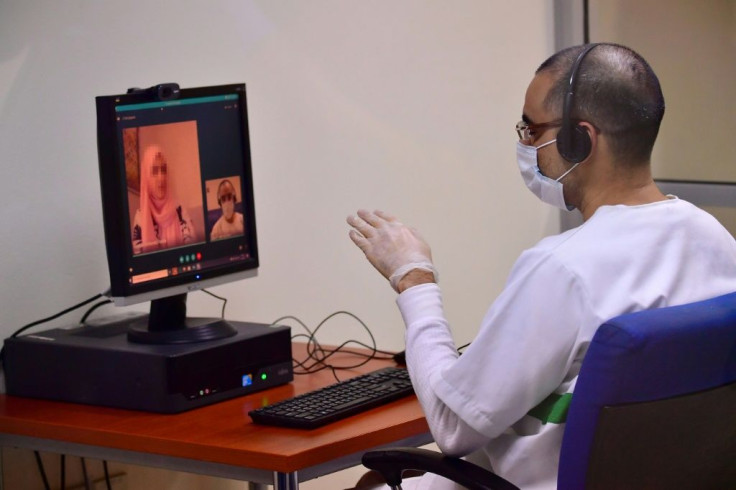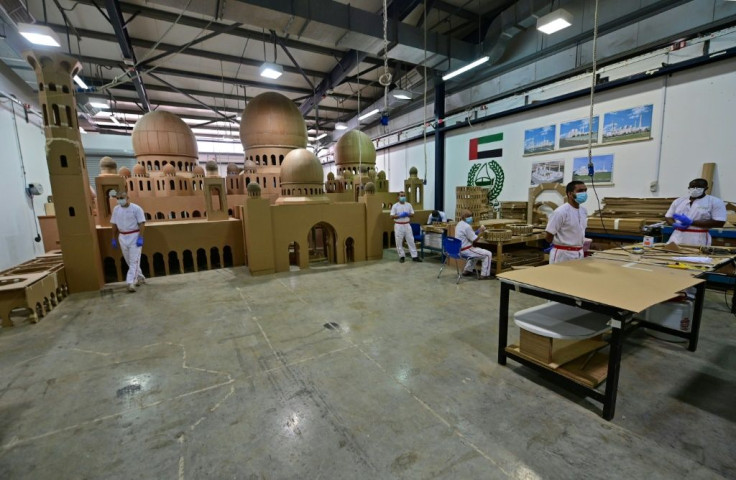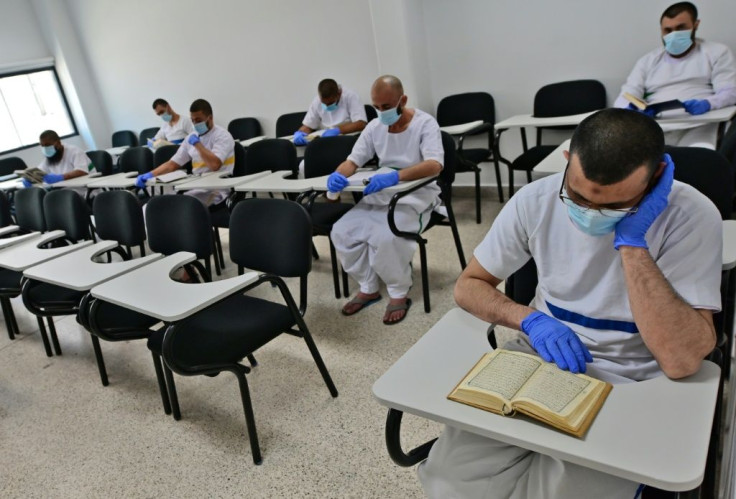Dubai Prison: Virtual Visits And Court Hearing Amid Virus Crisis
Behind a glass, sound-proof door, an inmate speaks with someone on a computer screen after visits to the Dubai prison were suspended due to the coronavirus pandemic.
In a separate room of the same compound located in the emirate's desert, about 35 kilometres (22 miles) from the city centre, another inmate appeared for a virtual court hearing, while a third was questioned by a prosecutor online.
The use of video conferencing systems is one of the ways authorities are trying to prevent the spread of the COVID-19 respiratory disease in the prison.
"We are trying to eliminate all direct contact with prisoners... heavily depending on modern technology," Brigadier Ali al-Shamali, director-general of punitive and correctional institutions, told AFP during a tour of the Al-Awir central prison.

"We can guarantee the health of the inmate, but how can we know whether someone from outside is carrying the virus?"
Prisoners in the Dubai jail can now talk to their families using the Skype telecommunications application.
Shamali declined to say how many prisoners had caught the coronavirus, but said there were no "active" cases and the overall number recorded could be "counted with fingers".

Those diagnosed with COVID-19 had mild cases, he said, and required only "isolation and simple treatment".
Everyone, whether serving time or employed at the jail, was tested "without exception" in coordination with the official health authorities, Shamali added.
Inmates and staff must wear masks and gloves at all times, some classes and workshops were suspended and the prison gym closed.
So far, the United Arab Emirates -- made of up seven emirates, including Dubai -- has recorded more than 26,000 COVID-19 cases, including 233 deaths.

"We seek to reduce contact at work, but our main concern is that we continue to provide the same quality of service, even if it is from afar," Badr Sultan, a prison doctor, told AFP from his office, adding that most medical consultations now took place via video conferencing.
Before admission, new inmates are tested for COVID-19 and isolated for 48 hours, said Shamali, standing near a sign that read "Hala (welcome to) Happiness".
In a clinic nearby, a dermatologist asked an inmate to describe his skin condition, prescribing an ointment after seeing the infected area on screen.
In another room, a psychiatrist spoke online to an inmate about the "daily pressures" of life during a pandemic.
Since the outbreak began, the authorities have released hundreds of prisoners detained for low-level crimes or because they were unable to post bail.
"We received directives to release inmates... and since the outbreak, there are 30 to 35 percent fewer prisoners," Shamali said, without specifying numbers.
"We want to reduce the number on a daily basis, especially release those with simple cases, not ones accused of big crimes."
The new safety measures in the prison have been difficult on inmates, some of whom are used to spending their days in workshops and recreational classes.
A group of seven inmates had been working on producing the largest-ever cardboard sculpture -- the goal was for Guinness World Records to certify it.
Cardboard domes and arches were scattered across a prison recreation room -- parts for a scale replica of Abu Dhabi's Sheikh Zayed Grand Mosque -- but the virus restrictions have slowed work on the project in the past two months.
"I came to the UAE in 1999, and I loved the design of the Sheikh Zayed mosque, so I studied it and sought to build the biggest cardboard model by 2021," said the inmate in charge of the project.
"We have put the project aside for now. The question now is: What do I do with my time here?"
© Copyright AFP 2024. All rights reserved.




















